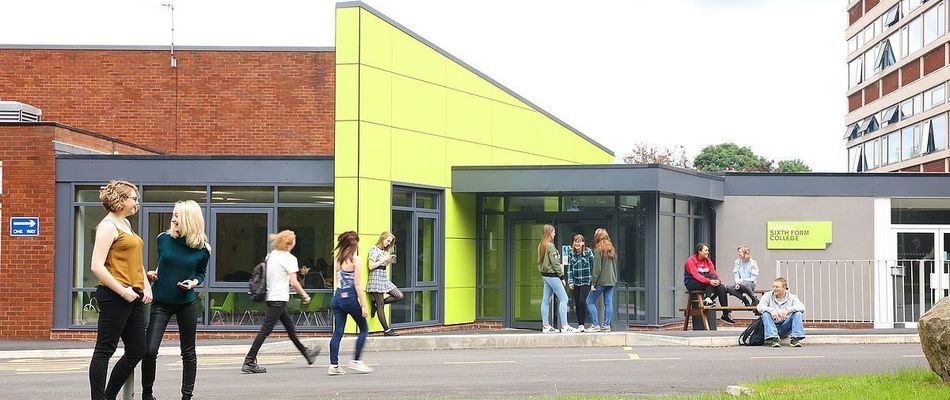What can a GFE and an SFC learn from each other about quality?
Back
Having worked within the bubble of a single, relatively small sixth form college for my entire 23-year career, I must admit the news that we were merging with one of our local (and very large) GFE colleges in 2021 filled me with some trepidation. Having been one of the leads for the development of TLA and quality at Cheadle and Marple Sixth Form College, I had grown to feel both confident in the decisions that I made and comfortable in how I would promote and communicate any quality processes with colleagues at the college.
As part of the merger process, I was fortunate to be able to contribute to the initial aligning of quality processes between us and Trafford College Group. However, with very little understanding of the inner workings of a large GFE college, I felt much less confident in promoting my ideas initially, and, if I’m honest, didn’t really know if they were transferable at all. Once the merger had concluded, I found myself retaining a leadership position with responsibility for quality. Now the serious doubt began! Do regular low-stakes, knowledge retrieval assessments have the same benefit in a Level 1 brickwork class as they do in a year 12 A-Level psychology class? Are Rosenshine’s Principles of Instruction of any relevance at all? Do a series of diagnostic, subject-specific initial assessments have the same impact during student induction? Of course, I quickly found that the answer to all of these nagging doubts was that they do. Students benefit enormously from being required to retrieve their knowledge and understanding on a regular basis, no matter what subject they are studying. Teachers (of all subjects) should have an understanding of Rosenshine’s extensive work and present new material using small steps, in addition to asking a large number of questions to check understanding. Students will, of course, be more likely to make better progress if they have undertaken a thorough induction on their chosen course, in order to develop the skills required to succeed on that course, no matter the course. You get the idea!
Despite my early doubts and reservations, I made the decision to go with my instinct and set about trying to implement many of the quality processes we had used at Cheadle and Marple across the whole merged college. Of course, implementing these ideas and strategies would require me to be able to justify them, initially with leadership colleagues, but more importantly with curriculum colleagues. I quickly found that it can be fairly straightforward to justify sound ideas, particularly if they are evidence-informed and have had previous positive impact. However, the one question that I continue to ask myself is ‘What impact will this have on staff workload?’. Any quality activity that is going to result in an increased load being placed on an already stretched workforce, particularly at a time of crisis for teacher retention, is going to be potentially troublesome. Even more importantly, it will be less likely to have a positive impact over time, due to the impact of the workload and a resulting lack of consistency as new practices fall by the wayside in favour of meeting immediate and familiar demands. It is this conundrum that causes the uneasy dissonance between an approach to quality that prioritises a relentless drive towards excellent provision and an approach that prioritises staff wellbeing. As a result, there have been a number of quality processes that I have had to reluctantly abandon, despite my belief that they may be very likely to drive excellence if embedded.
Ultimately, there is one unswerving factor that remains the biggest influence on the quality of the education that students obtain: the day-to-day classroom and workshop experience that they receive from their teachers. It is with this in mind that the most important quality activity should be to provide the necessary support and tools for teachers to be able to do their job to the best of their ability. This, of course, isn’t easy in the current climate, and many barriers remain, but trying to create a culture in which staff feel supported and appreciated may just go a long way towards chipping away at this over time. An approach we have adopted to try to foster this culture is through a model of supportive coaching and mentoring, through a team of experienced, trained and highly skilled colleagues, who possess the requisite skills and tools to develop our staff. These colleagues meet regularly to discuss teaching and learning and share their observations from the many and varied curriculum areas that they visit and support. It appears to be working and has certainly been well-received by many staff across the college, but there is much more work to do to ensure that it is fully embedded and having the necessary impact to drive quality. The impact of this work should ultimately be seen in the outcomes we achieve over time, including value-added, and other very important aspects of our work, such as staff retention and satisfaction and learner voice, which we will be monitoring into the future to gauge how our quality strategies are working and evolve.
Adam Sinnott is interim director of quality, performance and standards at SFCA member the Trafford College Group.

